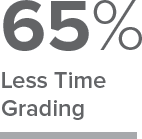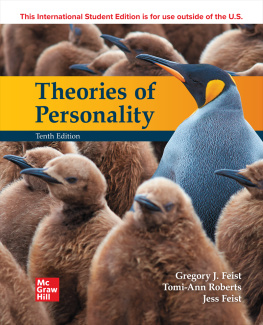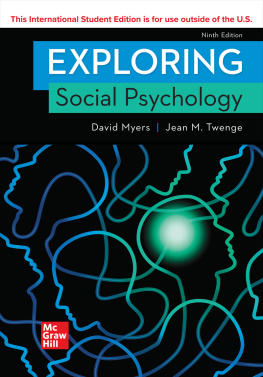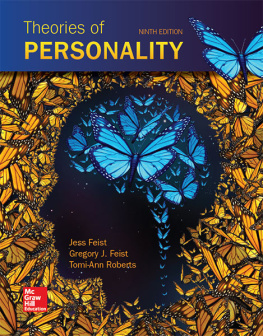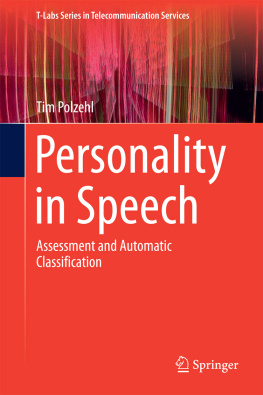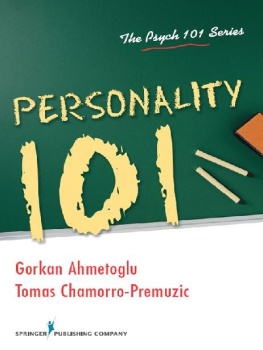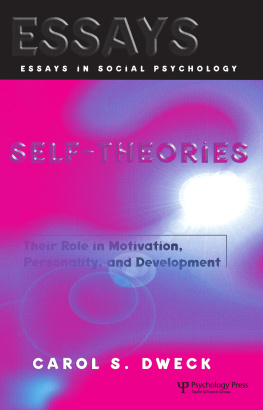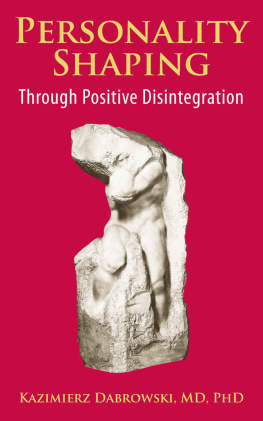Pages

page iii
About the Authors

Gregory J. Feist
Gregory J. Feist is a Professor of Psychology in Personality at San Jose State University. He has also taught at the College of William & Mary and University of California, Davis. He received his PhD in Personality Psychology in 1991 from the University of California at Berkeley and his undergraduate degree in 1985 from the University of MassachusettsAmherst. He is widely published in the psychology of creativity, the psychology of science, and the development of scientific talent. One major focus of his is establishing the psychology of science as an independent study of science, along the lines of history, philosophy, and sociology of science. His major efforts toward this end are: Psychology of Science and the Origins of the Scientific Mind (2006, Yale University Press), which was awarded the 2007 William James Book Prize by the Division of General Psychology, American Psychological Association (APA); and being founding president of the International Society for the Psychology of Science and Technology.
His research in creativity and personality has been recognized with the Berlyne Award from the Division for Psychology of Aesthetics, Creativity and the Arts (Division 10) of APA. Feist is former president of APAs Division 10 and has served on editorial boards. His teaching efforts have been recognized by outstanding teaching awards from both UC Berkely and UC Davis. Feist is the co-author of Psychology: Perspectives and Connections (McGraw-Hill, 4th edition) and co-editor of the Handbook of the Psychology of Science (Springer Publications) and Cambridge Handbook of Creativity and Personality.
page iv

Tomi-Ann Roberts
Tomi-Ann Roberts earned her BA from Smith College and her PhD from Stanford University. She is a Professor of Psychology at Colorado College. Her research interests include the sexual objectification of girls and women, self-objectification, and the consequences of these for physical, emotional, and cognitive well-being. The first paper she coauthored on this topic, Objectification Theory, is the most cited article in over the 40-year history of the journal Psychology of Women Quarterly. In addition to her scholarly publications, she served on several American Psychological Association task forces, including Sexualization of Girls and Educating through Feminist Research. She served as president of the Society for Menstrual Cycle Research from 20172019. She leverages psychological science as an expert witness and consultant in cases involving objectification as a form of sexism and gender discrimination.

Jess Feist
Jess Feist was Professor of Psychology at McNeese State University in Lake Charles, Louisiana from 1964 until his death in 2015. Besides coauthoring Theories of Personality, he coauthored with Linda Brannon, Health Psychology: An Introduction to Behavior and Health. He earned his undergraduate degree from St. Mary of the Plains and graduate degrees from Wichita State University and the University of Kansas. His research interest was in early childhood recollections.
page xx
Acknowledgments
Finally, we wish to acknowledge our gratitude to the many people who have contributed to the completion of this book. First of all, we are grateful for the valuable help given by those people who reviewed earlier editions of Theories of Personality. Their evaluations and suggestions helped greatly in the preparation of this new edition. These reviewers include the following: Robert J. Drummond, University of North Florida; Lena K. Ericksen, Western Washington University; Charles S. Johnson, William Rainey Harper College; Alan Lipman, George Washington University; John Phelan, Eric Rettinger, Elizabeth Rellinger, Evert Community College; Linda Sayers, Richard Stockton College of New Jersey; Mark E. Sibicky, Marietta College; Connie Veldink, Illinois College; Dennis Wanamaker; Kevin Simpson, Concordia University; Lisa Lockhart, Texas A&M UniversityKingsville; Natalie Denburg, University of Iowa Hospitals and Clinics; Kristine Anthis, Southern Connecticut State University; Eros DeSouza, Illinois State University; Yozan D. Mosig, University of NebraskaKearney; Angie Fournier, Virginia Wesleyan College; Atara Mcnamara, Boise State University; Randi Smith, Metro State College of Denver; and Myra Spindel, Florida International UniversityMiami. Carrie Hall, Miami University of Ohio; Kenneth Walters, State University of New York at Oneonta; and Melissa Wright, Northwest Vista College. Thanks to the Colorado College students in personality class over the years for their many insightful comments that keep these editions fresh.
In addition, we are also grateful to the following reviewers whose feedback helped to shape the tenth edition: Cassandra Zamoralez, Brazosport College; Rebecca Gibson, Liberty University; Stephen P. Joy, Albertus Magnus College; William Price, North Country Community College; Sarah Angulo, Texas State University; and David Rentler, University of Connecticut.
We appreciate the strong support we have had from our publisher. We would like to express our special thanks to Elisa Odoardi, Product Developer, Danielle Clement, Senior Content Project Manager, Lumina Datamatics, Inc. developmental editors, Ann Loch and Adina Lonn, and Mithun Kothandath from SPi Global for his production assistance.
We are also indebted to Albert Bandura for his helpful comments on the chapter dealing with social cognitive theory. We also wish to thank these other personality theorists for taking time to discuss appropriate sections of earlier editions of this book: Albert Bandura, Hans J. Eysenck (deceased), Robert McCrae, Paul T. Costa, Jr., Carl R. Rogers (deceased), Julian B. Rotter (deceased), and B. F. Skinner (deceased).
Finally, GJF thanks his sons Jerry and Evan, and T-AR thanks her daughters Annika and Mia for their emotional support and other important contributions. Both GJF and T-AR want to acknowledge the foundational work on this book that Jess Feist provided in authoring the first 3 editions alone. This book would not exist without him.
As always, we welcome and appreciate comments from readers, which help us continue to improve Theories of Personality.
Gregory J. Feist
Oakland, CA
Tomi-Ann Roberts
Colorado Springs, CO
page v
Contents
page vi
page vii
page viii
page ix
page x
page xi
page xii
page xiii
page xiv
page xv

page xviii

FOR INSTRUCTORS
Youre in the drivers seat.
Want to build your own course? No problem. Prefer to use our turnkey, prebuilt course? Easy. Want to make changes throughout the semester? Sure. And youll save time with Connects auto-grading too.
